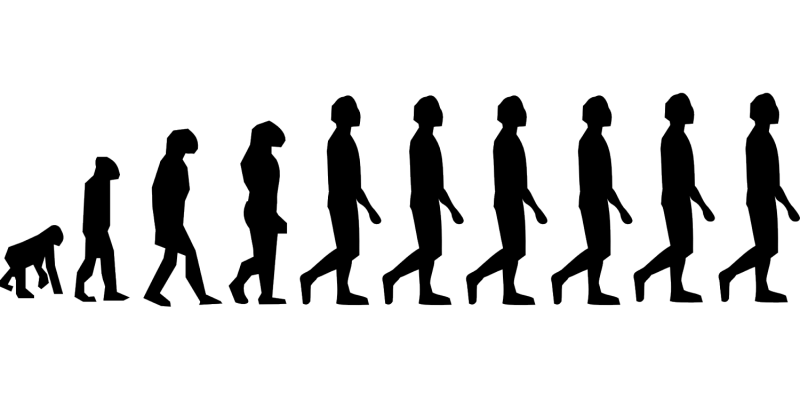July 12, 2016 report
Economist suggests humans are still evolving

(Phys.org)—Harvard economist Jonathan Beauchamp has conducted a study of lifetime reproductive success (rLRS) of a small segment of the U.S. population and has concluded that there is evidence that humans are still evolving. In his paper published in Proceedings of the National Academy of Sciences, he describes the study he conducted, his results and why he believes we are still evolving despite our control over our environment.
As Beauchamp notes, many in the scientific community have come to believe that humans stopped evolving approximately 40,000 years ago—shortly after the advent of agriculture. But he notes there is also evidence that refutes such claims, such as studies that have shown that people developed an ability to digest milk and to live at high altitudes much more recently.
To learn more, he conducted an analysis of records on 20,000 people he obtained from the Health and Retirement Study, which has compiled data on people born between the years 1931 and 1953. He chose this group because the vast majority of them were past child-bearing age—thus he was able to calculate a rLRS for each of them. Besides counting how many children they had, he also looked at body mass index, schizophrenia, age of onset of menstruation and education level—all traits that have genetic roots.
After studying the data, Beauchamp found evidence of evolution in two phenotypes—a slight uptick in the age of first menstruation and a trend toward a lower rLRS for people who had more education—conversely, people with less education had more kids and thus more opportunity to pass on their genes.
But, as Beauchamp acknowledges, his study was based on a very limited dataset, and it was constricted in that it left out the possible children that might have been born to the people in the database who died before growing old, for example. There is also an issue with the increased age of first menstruation, as recent studies have shown that it is actually going down, not up. And there is evidence that even if evolution is still at work, it appears that it is being overridden by our ability to control so many factors of our lives, such as saving people who would have died a natural death, or artificial fertility measures for educated people who have children later in life.
More information: Jonathan P. Beauchamp. Genetic evidence for natural selection in humans in the contemporary United States, Proceedings of the National Academy of Sciences (2016). DOI: 10.1073/pnas.1600398113
Abstract
Recent findings from molecular genetics now make it possible to test directly for natural selection by analyzing whether genetic variants associated with various phenotypes have been under selection. I leverage these findings to construct polygenic scores that use individuals' genotypes to predict their body mass index, educational attainment (EA), glucose concentration, height, schizophrenia, total cholesterol, and (in females) age at menarche. I then examine associations between these scores and fitness to test whether natural selection has been occurring. My study sample includes individuals of European ancestry born between 1931 and 1953 who participated in the Health and Retirement Study, a representative study of the US population. My results imply that natural selection has been slowly favoring lower EA in both females and males, and are suggestive that natural selection may have favored a higher age at menarche in females. For EA, my estimates imply a rate of selection of about −1.5 mo of education per generation (which pales in comparison with the increases in EA observed in contemporary times). Although they cannot be projected over more than one generation, my results provide additional evidence that humans are still evolving—albeit slowly, especially compared with the rapid changes that have occurred over the past few generations due to cultural and environmental factors.
Journal information: Proceedings of the National Academy of Sciences
© 2016 Phys.org



















